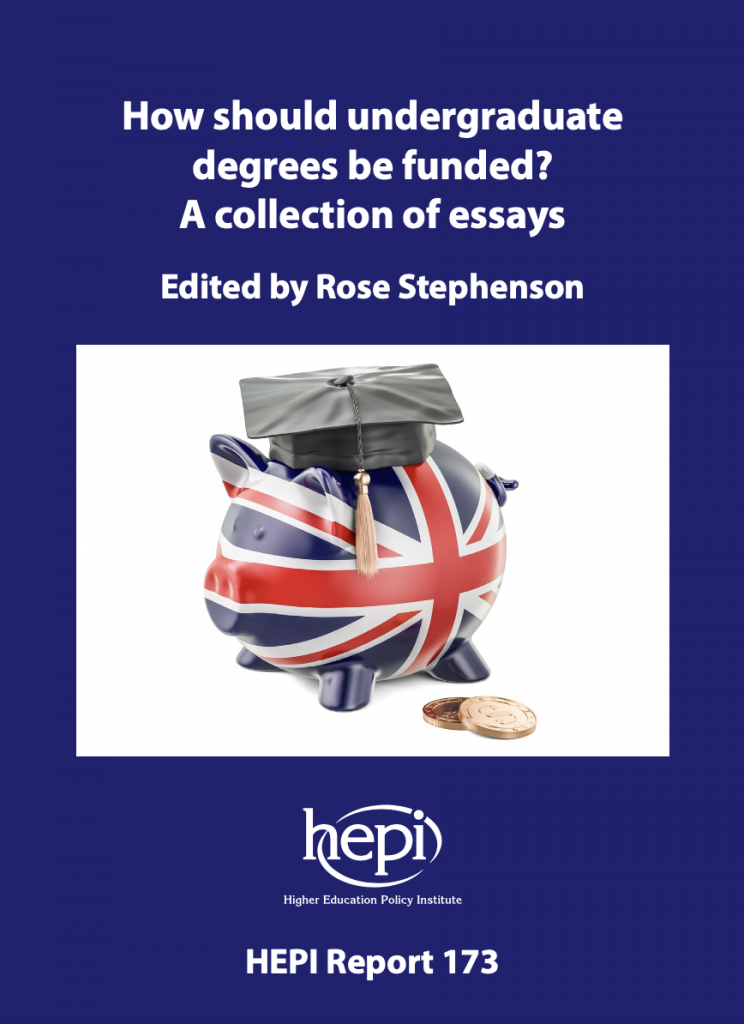Forget about canaries, the signs of impending doom are more like the sound of cracking rock thundering through the coal mine and debris collapsing around us.
Here are just two recent signs.
Sign 1
New research recently revealed that now more than half of supposedly full-time undergraduates are doing paid work for more than 15 hours a week and nearly a quarter have full-time jobs alongside their studies to make ends meet.
The idea that students whinge about not having enough money is nothing new. (There are even a jokes about it in Chaucer’s Reeve’s Tale from the fourteenth century.) But we have reach a different order of poverty now. The situation is desperate and it’s damaging to their wellbeing and their outcomes.
Sign 2
In the past few weeks dozens of universities have announced redundancies. Just this morning the number crept to 49 and there are probably more to come. This is because HE funding in the UK has been facing real terms cuts for the past decade. This is the equivalent of anorexia for our world-leading HE sector. With no more fat to shed, the system has started to consume itself.
There is a crisis in the way we fund students and the way we fund the institutions where they study.
What should politicians do about it?
The major political parties would rather not say anything about this. They know the parlous state of the nation’s finances. They know the majority of voters would prioritise any available funding to be directed towards health, crumbling schools, bankrupted local councils, the cost of living, et cetera et cetera et cetera. And the politicians fear that commitments to solve the crises in HE will not come cheap.
They have to say something though. A blank where an HE policy should be will be noticed and challenged. So right now, I suspect drafts are being drawn up with long-grass-kicking promises of a ‘review’. If we’re lucky, they’ll be wondering where to commit to ‘a radical review’.
They shouldn’t be so quick to dismiss the opportunities to win votes and do The Right Thing in the process. The rewards of having a successful higher education sector are boundless: a higher skills pipeline leading to greater productivity in the workforce; home-grown talent filling labour market shortages; social mobility opportunities; investment-sparking research; levelling up around HE providers acting as innovation hubs and major regional employers; et cetera et cetera et cetera.
To that end, I want to offer two options for the manifesto of any party that wants a real and practical solution.
The safe option

I was delighted that my Fairer Funding proposal for an Employer Levy has been economically modelled & polled in Higher Education Policy Institute’s latest report published this week.
It wouldn’t cost taxpayers more. In fact it would save a staggering £8 billion a year compared to currently.
Yes, you read that right: £8 billion for each cohort of students. That’s not my estimate, that’s according to the independent economic modelling by London Economics Ltd, who analysed the Employer Levy alongside 3 other proposals for English HE and one for Scotland.
Not only would it save billions of pounds, it would better balance student demand and labour market needs, support access, provide financial headroom for more student maintenance support and better HE funding.
What’s more, student debts would be slashed and – instead of loan repayments of 9% by graduates and, in effect, their employers – grads and employers would pay just 3% each.
Perhaps it’s no surprise that among potential students, polling showed the Employer Levy as easily the most popular with 78% saying they would definitely or probably apply (compared to 41-74% for other proposals and 68% for the current system).
The bold option
The bolder option (which is not necessarily mutually exclusive with the safe one) is for politicians to stop regarding the human capital of the nation as a cost at all and start to recognise that – like building roads, railways and power plants – building a skilled future workforce is an investment in the infrastructure of the country.
As such, all post-compulsory education could be treated as expenditure that will be financed by the additional revenues that will be generated by the investment and by avoiding the costs that would be incurred if the investment were not made.
It would require radical change to fiscal rules, but when the rules get in the way of so much benefit, I suggest they are what’s wrong, not what they prevent.

